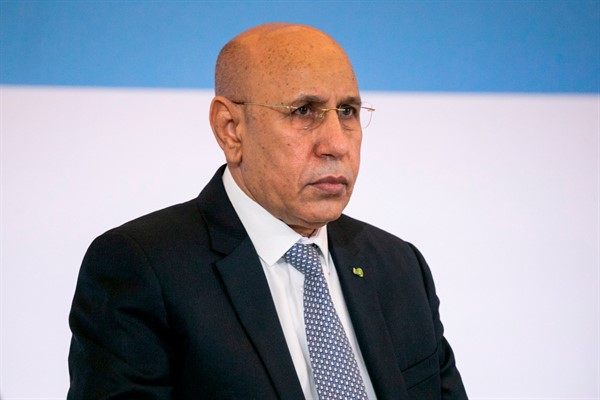On June 22, Mauritanian authorities arrested former President Mohamed Ould Abdel Aziz as part of a corruption investigation that began in January 2020. The immediate trigger for Ould Abdel Aziz’s arrest was that he had refused to check in with a judge. As the case moves forward, the current administration led by President Mohamed Ould Ghazouani, a former ally of Ould Abdel Aziz, faces a dilemma: Allowing Ould Abdel Aziz to escape the charges would give the former president a symbolic political victory and would undermine the rule of law, but convicting him of corruption would raise the stakes in Mauritanian politics, with potential future blowback for Ould Ghazouani’s administration.
Historically, there has been some fluctuation in terms of how Mauritanian leaders have treated their predecessors. The country experienced four coups between 1978 and 1984, and then another two coups in 2005 and 2008. On the whole, presidents that were overthrown have been forced into relatively comfortable forced retirements and have died of natural causes. But there have also been instances when a sitting head of state, feeling politically threatened, lashed out at a predecessor. For example, in the tense 2003 elections, incumbent President Maaouya Ould Sid’Ahmed Taya defeated Mohamed Khouna Ould Haidallah, whom he had overthrown in a 1984 coup. Yet Ould Taya still had Ould Haidallah arrested, both before and after the election, for allegedly plotting a new coup.
The relationship between Ould Abdel Aziz and Ould Ghazouani was supposed to be different. Born less than two weeks apart in 1956, the two men both served in the armed forces, and their careers were intertwined from the time they met as young officers while classmates at the Royal Military Academy in the city of Meknes, in northern Morocco. As senior officers, Ould Abdel Aziz and Ould Ghazouani were co-architects of the 2005 coup that overthrew Ould Taya, as well as the 2008 coup that brought Ould Abdel Aziz to power. After Ould Abdel Aziz retired from the military in 2009 to seek and win election as a civilian, Ould Ghazouani held major posts in the military throughout Ould Abdel Aziz’s decade-long presidency, before retiring from the service in late 2018 to accept a civilian post as minister of defense. Soon after, the ruling Union for the Republic party, or UPR, selected him as its presidential candidate for the 2019 elections.

